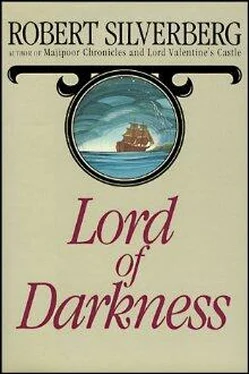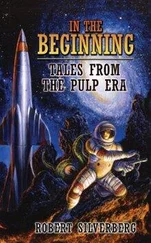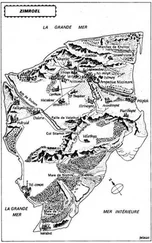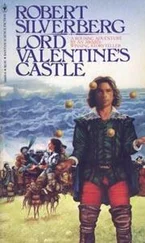Robert Silverberg - Lord of Darkness
Здесь есть возможность читать онлайн «Robert Silverberg - Lord of Darkness» весь текст электронной книги совершенно бесплатно (целиком полную версию без сокращений). В некоторых случаях можно слушать аудио, скачать через торрент в формате fb2 и присутствует краткое содержание. Год выпуска: 1983, ISBN: 1983, Издательство: Arbor House, Жанр: Исторические приключения, на английском языке. Описание произведения, (предисловие) а так же отзывы посетителей доступны на портале библиотеки ЛибКат.
- Название:Lord of Darkness
- Автор:
- Издательство:Arbor House
- Жанр:
- Год:1983
- ISBN:0-87795-443-7
- Рейтинг книги:5 / 5. Голосов: 1
-
Избранное:Добавить в избранное
- Отзывы:
-
Ваша оценка:
- 100
- 1
- 2
- 3
- 4
- 5
Lord of Darkness: краткое содержание, описание и аннотация
Предлагаем к чтению аннотацию, описание, краткое содержание или предисловие (зависит от того, что написал сам автор книги «Lord of Darkness»). Если вы не нашли необходимую информацию о книге — напишите в комментариях, мы постараемся отыскать её.
Lord of Darkness — читать онлайн бесплатно полную книгу (весь текст) целиком
Ниже представлен текст книги, разбитый по страницам. Система сохранения места последней прочитанной страницы, позволяет с удобством читать онлайн бесплатно книгу «Lord of Darkness», без необходимости каждый раз заново искать на чём Вы остановились. Поставьте закладку, и сможете в любой момент перейти на страницу, на которой закончили чтение.
Интервал:
Закладка:
Lord of Darkness
by Robert Silverberg
He that is shipped with the Devil must sail with the Devil.
—English proverbGod is English!
—John Aylmer An Harborowe for Faithfull and Trew Subjects , 1558Introduction
When I was a boy, more than sixty years ago, I encountered through some happy accident a magical, little-known novel by the English poet Walter de la Mare called The Three Mulla-Mulgars . It is a wonderful fantastical romance, published first in 1910, that tells of the adventures of three young Mulgars—the novel’s word for “monkeys”—of royal blood who, driven from their forest home by the enmity of Mulgars of less exalted birth, set out after their mother’s death on a vast and adventurous trip across the heart of Africa. Their goal is the Arakkaboa Mountains, where, so their mother often had told him, their dead father’s brother Assassimon reigns in splendor over a kingdom of animals.
“It will be a long and dreary journey, my sons,” their mother had warned them. “But the Prince Assassimon, Mulla-mulla of the Mulgars, is great and powerful, and has for hut a palace of ivory and Azmamogreel, with scarlet and Mamausul, slaves and peacocks, and beasts uncountable; and leagues of Ukka and Barbary-nuts; and bound- less fields of Ummuz, and orchards of fruit, and bowers of flowers and pleasure. And his, too, is the Rose of all the Mulgars.”
The Biblical cadence of de la Mare’s prose sang to me, even then, in my boyhood. I had no knowledge then of his models in the King James translation of the Bible (“The merchandise of gold, and silver, and precious stones, and of pearls, and fine linen, and purple, and silk, and scarlet.... And cinnamon, and odours, and ointments, and frankincense, and wine, and oil, and fine flour, and wheat, and beasts, and sheep, and horses, and chariots, and slaves, and souls of men....”) nor did I know yet of that other great source of his from which the exotic special words of his book had come, such words as M’keeso and Zevvera and Ollaconda, Dondo and Sharambba, Imbe Calandola, about which I will speak in a moment. But the powerful rhythms of de la Mare’s style and the strangeness of his three Mulgars’ journey through nightmare forests and formidable mountain passes exerted a powerful hold on me. I read The Three Mulla-Mulgars again and again when I was young, and I have read it every five or ten years ever since, and it has never lost its beauty and wonder for me.
There is only one human character in The Three Mulla-Mulgars , and he enters into the book only in its middle section, for three of its twenty-three chapters. He is the Oomgar—that is Mulgar-talk for “human”—Andrew Battle, who lives by himself in a hut in the forest, and who catches the youngest Mulgar, Nod, in a trap he has set up for snaring game. Battle proposes to keep Nod as a pet. He takes the skinny, preternaturally intelligent Nod to his hut, ties him to a pole, and gives him a little soup and a bite or two of meat, and in his loneliness begins talking to him, explaining that he is no cannibal, but a God-fearing English sailor who has been cast away in this remote and alien land, and who has spent “years and years in this here dismal Munza. Man-eaters and Ephelantoes, Portingals and blackamoors, chased and harrassed up and down....What wouldn’t I give for a sight of Plymouth now!”
To his amazement Battle finds Nod repeating some of his words:
“That,” said he, holding up a great piece of meat on his knife—”that’s meat .”
“Zmeat—ugh!” said Nod, with a shudder.
“And this here’s nuts,” said Battle.
“’Znuts!” repeated Nod, rubbing his stomach.
Battle rapped on his log. “Excellentissimo!” he said. “He’s a scholard born.”
And he goes on to say, “Andy Battle is an Englishman; hip, hooray! Andy Battle—
“Andy Baffle—”
“Is an—“
“Is an Englishman.”
“Izziningulissmum,” said Nod very slowly.
“Hip, hooray!” bawled Battle.
“Ippooray!” squealed Nod. And Battle rocked to and fro on his log with laughter.
Eventually Nod is found by his elder brothers, who urge him to escape and continue the journey toward Assassimon; and eventually Nod does, not without regret, telling Battle sadly that the time has come for him to leave. Battle gives him “out of his own pocket a silver groat with a hole in it, and a large piece of fine looking-glass, besides the necklet of clear blue Bamba-beads, and three rings of copper,” and wishes him well in his travels, and sends him on his way. And that is the last we see of Andrew Battle in this book, as the three royal monkeys make their way through one extraordinary adventure after another, and ultimately come to a land of sweet air and beautiful trees, where they at last are permitted to discover, “in a high, hairy cap, with a band of woven scarlet about his loins, and a basket of honeycombs over his shoulder, a Mulgar of a presence and a strangeness, who was without doubt of the Kingdom of Assassimon.”
Never did I think that Walter de la Mare’s “Andrew Battle” was anything other than a fictional character, briefly met, in this wondrous picaresque fantasy. But then, about 1962—some fifteen years after I first had read The Three Mulla-Mulgars —I began to do serious research into the great exploration narratives of the Elizabethan voyagers; and one of the old books I acquired was entitled The Strange Adventures of Andrew Battell of Leigh, in Angola and the Adjoining Regions . At the sight of the name of Andrew Battell there leaped instantly into my mind the Oomgar “Andy Battle” of Walter de la Mare’s novel, which was still as vivid to me as Alice in Wonderland or Peter Pan or any of the other fantasy-books of my childhood.
But could it be anything more than a coincidence, this similarity of names? I began at once to read The Strange Adventures of Andrew Battell , having discovered that it had originally appeared in that great seventeenth-century compendium of voyagers’ tales, Purchas His Pilgrimes . The edition of the Battell book which I had, an annotated version of the original Purchas text, had been published in 1901 by the Hakluyt Society of London, that remarkable organization which for more than a hundred fifty years now has been bringing forth edited versions of the great exploration narratives. And I had not read more than a few pages when I began coming across words out of the special Mulla-Mulgars vocabulary that was so deeply emblazoned in my memory and my imagination—spelled differently, sometimes, but of the same sound. Here was the Ollicondie tree, and here was Mokisso, meaning a spirit, and here was the chieftain Imbe Calandola, and many more.
So I knew that Walter de la Mare must have come upon the narrative of Andrew Battell of Leigh long before me, some time between its republication by the Hakluyt Society in 1901 and the appearance of The Three Royal Mulgars (as it was originally called) nine years later, and had drawn upon Battell’s account of his African adventures for many of the details and much of the vocabulary of his own fantastic novel. But he had not chosen to devote the book to Battell’s own story, strange as it was, only to make him an incidental character in the shimmering work of imaginative beauty that he would write.
I jotted a note to myself, there in 1962: “Tell the story of Andrew Battell yourself.”
And what a story it was! Battell’s account, dictated in England in his old age, spanned only 61 pages in the Hakluyt Society book—the rest of the volume was given over to narratives of other Europeans who had been in Angola at about the same time—but, episodic and incomplete though it is, it amazed me with its richness and power. It is the first record of European travels in the interior of Black Africa. Battell, a seaman who came from the once—important port of Leigh in Essex, had sailed for Africa in May, 1589, had been captured by the Portuguese and used by them as a pilot on trading vessels traveling along the coast of Angola, had eventually escaped into the hinterlands, and had spent several years living among a cannibal tribe, the Jagas or Jaqqas, before eventually returning to the Portuguese settlements and, after an absence of twenty years, making his way back to England.
Читать дальшеИнтервал:
Закладка:
Похожие книги на «Lord of Darkness»
Представляем Вашему вниманию похожие книги на «Lord of Darkness» списком для выбора. Мы отобрали схожую по названию и смыслу литературу в надежде предоставить читателям больше вариантов отыскать новые, интересные, ещё непрочитанные произведения.
Обсуждение, отзывы о книге «Lord of Darkness» и просто собственные мнения читателей. Оставьте ваши комментарии, напишите, что Вы думаете о произведении, его смысле или главных героях. Укажите что конкретно понравилось, а что нет, и почему Вы так считаете.












